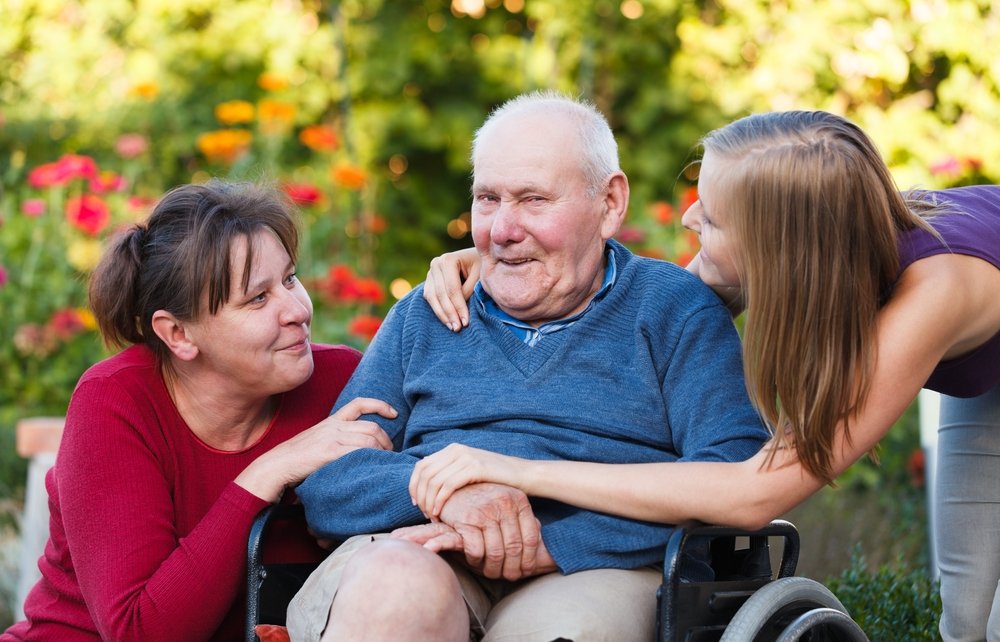Dementia Caregivers Pay High Emotional Toll, Need More Support, Surveys Say
Written by |

Two surveys released today — the start of Alzheimer’s disease month — examine the emotional toll the condition places on caregivers, and their need for greater support. The results are both revealing and alarming.
The online survey by the Alzheimer’s Association also delves into the serious lack of preparedness among the public, finding that while a full 70 percent of the 1,502 adult participants feared being unable to care for themselves and live independently as they aged, only 24 percent were planning financially for their future care needs. A mere 20 percent reported ever speaking with a family member about their care preferences.
Two in every three (64 percent) of the 25o survey respondents currently caring for someone with Alzheimer’s or dementia also agreed to feeling “isolated or alone” in the task, and more than four in every five (84 percent) said they needed more help with caregiving, especially from other family members.
Those findings were echoed in the survey by Home Care Assistance, which focused on caregivers to determine whether those caring for people with dementia spend more time giving care, and are more stressed doing so, than those assisting people with other chronic illnesses.
Specifically, this survey — of 670 family caregivers performed May 8–11 by Research Now — found that 26 percent of dementia caregivers spent more than 25 hours a week caring for their family member. The number among non-dementia caregivers, spending an equal amount of weekly time, was 18 percent.
At the bottom were those spending less than five hours a week caregiving. They made up 31 percent of non-dementia caregivers, and 14 percent of dementia caregivers.
Dementia caregivers were seven times more likely than non-dementia carers to experience daily feelings of exhaustion — physical, emotional and mental — triggered by their responsibilities.
They also experienced extreme stress linked to their caregiving tasks three times more often than non-dementia carers. This type of exhaustion is commonly referred to as caregiver burnout.
It’s a situation not likely to be resolved easily, with the Alzheimer’s Association survey finding that, while a wide majority (74 percent) of respondents preferred a paid caregiver rather than burdening a family member, only 15 percent were financially prepared to afford one.
“Very few people are financially prepared for the cost of caring for someone with Alzheimer’s, which is made worse by the fact that most Americans lack adequate savings for retirement, and many have none,” said Beth Kallmyer, vice president of Constituent Services for the association. “The added burden of Alzheimer’s care … is going to directly impact them and the public healthcare system. With a large segment of the American population reaching high-risk years for Alzheimer’s, we’re entering a crisis.”
An estimated 15 million people in the U.S. are now caring — unpaid — for an Alzheimer’s or dementia patient, the association reports. Meanwhile, the number of Americans 65 and older with Alzheimer’s is expected to almost triple by 2050, from 5.5 million to a projected 16 million.
In its survey, the Alzheimer’s Association also looked specifically at the strains caregiving can place on families, finding the responsibilities either strengthen ties or tear them apart. Siblings often were most affected, with 61 percent agreeing they were given insufficient support by other siblings in providing care, or with sharing the burden (53 percent). Many (43 percent) felt their efforts were undervalued by others in their family, or by the patient (41 percent).
But it also found that 35 percent of caregivers felt deeper bonds with their family because of the responsibilities they had assumed, with particular closeness expressed between spouses affected by the disease.
The Home Care Assistance survey homed in on the various stresses experienced by caregivers. To better understand what is most stressful in caring for someone with dementia, the survey asked what was most stressful of five events: Communicating with the loved one; juggling job and caregiving responsibilities; learning how to properly provide care; making financial decisions on behalf of the loved one; and watching the family member decline.
Among dementia caregivers, 38 percent stated it was most stressful to watch a loved one decline. Trying to balance work and caregiving responsibilities came in second.
There were differences, however, in how men and women handled their responsibilities and rated stress factors. Men were 21 percent more likely than women to be stressed by juggling work and caregiving.
But the emotional toll on women is also high, as many care for children while managing a family member with dementia. According to the survey, these women were twice as likely as men to feel extreme guilt for not seeing to the needs of their own children and families.
A similar difference was seen when comparing women who cared for family members with dementia, and those who care for loved ones with other conditions. Women taking care of a dementia patients were 61 percent more likely to feel extreme guilt for neglecting their children or families.
“We’re facing an impending health crisis not only for the tens of millions living with Alzheimer’s and other forms of dementia, but also for the loved ones that care for them,” said Lily Sarafan, CEO of Home Care Assistance.
“Reliable data on the spectrum of family caregiver experiences, as well as solutions for caregivers to effectively manage their own health and wellness, are essential components of the broader care ecosystem. Our hope is that breathtaking scientific advances and lifespan gains are accompanied by thoughtful leadership and policies to address the realities of caregiving,” Sarafan added.
The Alzheimer’s Association, in a press release on its survey data, noted that it offers a 24-hour Helpline (800) 272-3900 for family members and friends of patients, as well as resources on such issues as financial and legal planning, long-distance caregiving and a finder for local or community resources.





